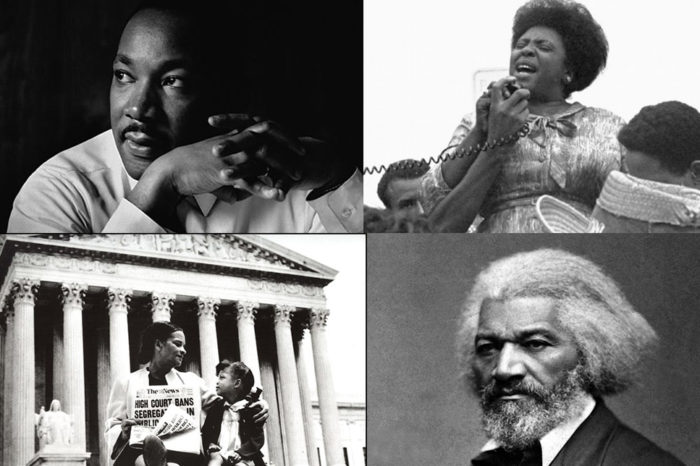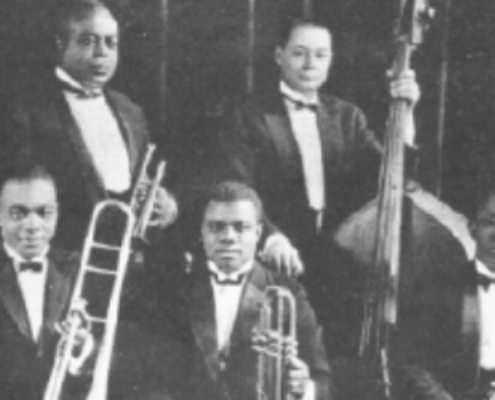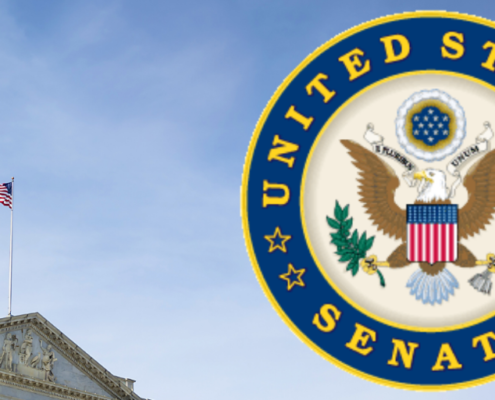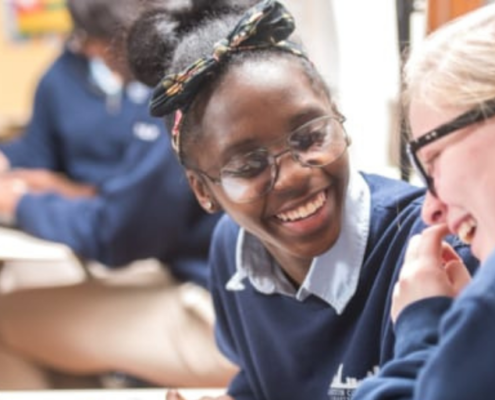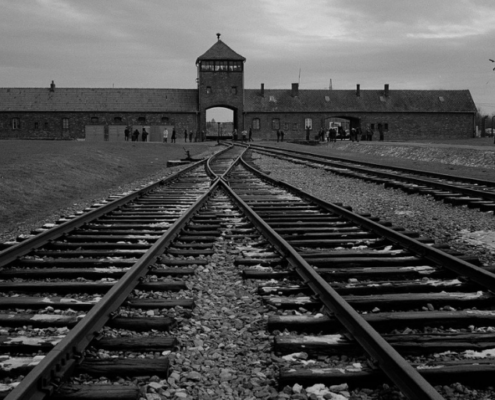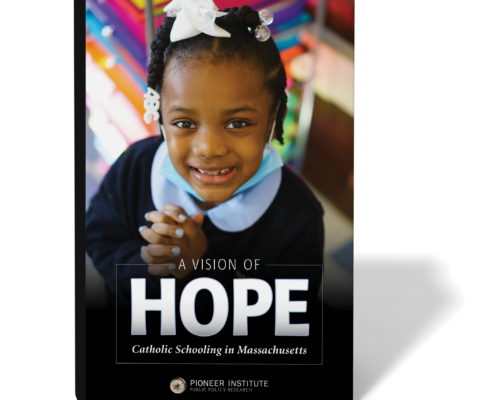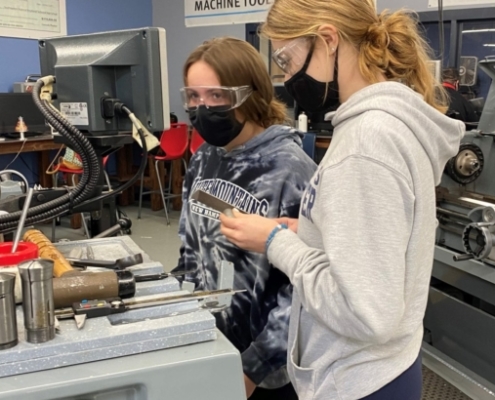Celebrating Black History Month
In the month of February, the nation honors the achievements of African Americans; their stories and historical accomplishments are worthy of recognition year round. That’s why Pioneer Institute has sponsored events, produced videos, and published opinion pieces informing the public about important leaders and key milestones in the African-American experience, as well as the need for more educational choice options for all children. Pioneer supports school choice and improvements to academic instruction, especially in U.S. history, so all schoolchildren learn about African-Americans’ long struggle for freedom and equal opportunity. Below, we share some highlights from our coverage of seminal figures, topics, and periods such as slavery during the Founding era, the Civil War, and Civil Rights icons such as Fannie Lou Hamer, the Rev. Fred Shuttlesworth, Robert Moses, and the Rev. Dr. Martin Luther King, Jr.
“Injustice anywhere is a threat to justice everywhere. We are caught in an inescapable network of mutuality, tied in a single garment of destiny. Whatever affects one directly, affects all indirectly.”
– Dr. Martin Luther King, Jr., Letter from a Birmingham Jail
As a nation, we have a long way to go to address continued injustices. Persistent academic achievement gaps between African-American students and their white peers threaten to undermine prospects for upward social mobility. To address this disparity, Pioneer has actively promoted education reforms that have proven successful at helping minority students reach their full potential: private and parochial schools, charter public schools, the METCO inter-district school choice program, vocational-technical education, and a menu of school options.
Through events and op-eds placed in regional and national publications, Pioneer has advocated for expanded school choice to give inner-city students a lifeline out of failing public schools. Last month, we produced a feature-length documentary film, “Big Sacrifices, Big Dreams: Ending America’s Bigoted Education Laws,” that seeks to raise public awareness about constitutional barriers in 38 states that block underprivileged children from attending private or parochial schools. Here in Massachusetts, the so-called Know-Nothing amendments prevent more than 100,000 urban families with children in chronically underperforming districts from receiving scholarship vouchers that would provide additional educational alternatives. Repealing these laws would immediately help low-income and minority students. As film narrator and Pioneer school reform advisor Gerard Robinson concludes, “Past bigotries are an unforgivable limitation on our children’s future.” Watch the film below, as well as clips from our events and op-eds.
Pioneer, through its podcast, is also providing a platform for more diverse voices, to discuss the importance of teaching our children about the history of African-Americans, and their contributions to our shared national heritage. Most recently, The Learning Curve education podcast featured U. Georgia Professor Valerie Boyd, discussing her biography of Zora Neale Hurston, the “Queen of the Harlem Renaissance,” and her 1937 classic, Their Eyes Were Watching God, a book that all schoolchildren should read.
Video (Click image to watch):
“Big Sacrifices, Big Dreams: Ending America’s Bigoted Education Laws”
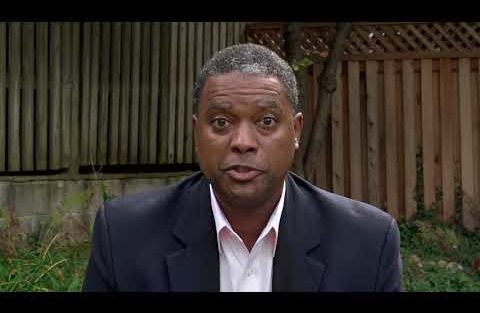
Related event videos and commentary:
Video Highlights from “America in the Age of MLK: Teaching the Civil Rights Movement in Schools” (held on January 15, 2014):
Video Highlights from “A Fire You Can’t Put Out: Rev. Fred Shuttlesworth, Civil Rights, and School Choices” (held on March 20, 2017):
Video Highlights from “Civil Rights: Charter Schools & Teacher Unions,” (held on February 26, 2015):
Video Highlights from “The Founders and Slavery: Dr. Howard Dodson” (held on January 28, 2013):
Related op-eds:
| Op-ed: Fannie Lou Hamer: ‘I Am Sick And Tired Of Being Sick And Tired’
By Jamie Gass October 6 would be the 100th birthday of Fannie Lou Hamer, the black civil rights activist and vice-chair of the Mississippi Freedom Democratic Party (MFDP). She made history during Freedom Summer 1964, storming the Magnolia State’s all-white delegation at the Democratic National Convention (DNC) in Atlantic City. “I am sick and tired of being sick and tired,” Hamer would later famously say. Fannie Lou Hamer’s grit in the face of relentless rural poverty and violence in the Jim Crow South make her a heroine whom American schoolchildren should know. But decades of national data show just how little they actually do know about U.S. history, civics, and geography. History tells us that economic striving, great art, and moral leadership often spring from adversity. Read this entire op-ed in The Hechinger Report, WGBH News and The Berkshire Eagle. |
| The Boston Globe op-ed: State should expand METCO
By Cheryl Brown Henderson and Jim Stergios THE 50TH anniversary of the Metropolitan Council for Educational Opportunity (METCO), which allows about 3,300 Boston and Springfield students to attend school in surrounding districts, provides a good opportunity to take stock of the program and, in doing so, compare it with the intent of the landmark 1954 United States Supreme Court decision in Brown v. Board of Education. In its opinion, the court wrote that education is the “most important function of state and local governments. . . . It is doubtful that any child can be reasonably expected to succeed in life if he is denied the opportunity of an education. Such an opportunity . . . is a right that must be made available to all on equal terms.” METCO exemplifies the court’s pronouncement. Read more… |
| Op-ed: Teach students history of horrific slave trade
By Jamie Gass “In thinking of America, I sometimes find myself admiring her bright blue sky and star-crowned mountains,” wrote African-American statesman and former slave Frederick Douglass. “But my rapture is soon checked When I remember that all is cursed with the infernal actions of slaveholding.” February is Black History Month, but black history is American history and shouldn’t be relegated to one month annually. Given K-12 education’s general disdain for background knowledge and memorizing dates, most American high school students know little European, African, and U.S. history or geography, including the terrifying truths about the transatlantic slave trade. The slave trade uniquely embodies Rev. Martin Luther King, Jr.’s view that we all share, “a single garment of destiny.” Spanning 1444 to 1870, the African slave trade defined our civilization, leaving a haunting global legacy. Read this entire op-ed in The New Bedford Standard Times, The Lowell Sun, The Fitchburg Sentinel & Enterprise, The Springfield Republican, The Berkshire Eagle, The MetroWest Daily News, and The Federalist. |
| Op-ed: We must teach hard historical truths of Emmett Till’s murder
By Jamie Gas This week marks the 60th anniversary of the murder of Emmett Till, a 14-year old black boy from Chicago who was killed by two white Mississippians for whistling in the presence of a white woman. “The news of Emmett’s death caused many people to participate in the cry for justice and equal rights, including myself,” wrote Rosa Parks, the first lady of civil rights. Read more… |
Get Updates On Our US History Initiative
Related research and commentary:

